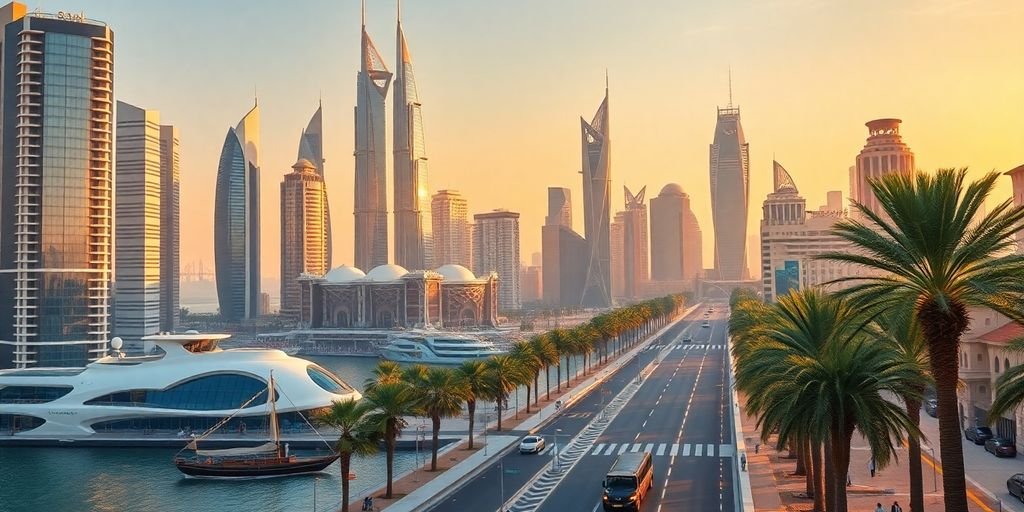UAE’s Economic Horizon: Diversification Beyond Oil and the Rise of Digital Nomadism
The United Arab Emirates is rapidly transforming its economic landscape, moving beyond its traditional oil-dependent model. Through strategic initiatives, the nation is actively diversifying its economy, attracting international businesses, and positioning itself as a global hub for digital nomads. This shift is underpinned by significant investments in infrastructure, technology, and a business-friendly environment.
Driving Economic Diversification
The UAE’s commitment to economic diversification is evident in its multi-faceted approach:
- Infrastructure Development: Abu Dhabi’s ports are undergoing significant expansion to bolster logistics and tourism, serving as a key driver in the nation’s post-oil transformation.
- Attracting Foreign Investment: The UAE continues to be a magnet for foreign direct investment (FDI), with inflows reaching $30.688 billion in 2023, making it the second-largest FDI inflow destination globally.
- Strategic Partnerships: The UAE has forged collaborations, such as a $10 billion partnership with the United States in artificial intelligence, aimed at building data centers and fostering research.
- Free Trade Zones: Dubai and Abu Dhabi have expanded their free trade zones, offering incentives and bypassing tariffs for businesses seeking access to global markets.
The Rise of Digital Nomadism
The UAE is actively cultivating its image as a premier destination for remote workers:
- Global Ranking: The UAE has ascended to second place globally in the 2025 VisaGuide Digital Nomad Visa Index, trailing only Spain.
- Targeted Visa Programs: The introduction of the one-year renewable Remote Work Visa in 2021 and Abu Dhabi’s Virtual Working Programme underscore the nation’s commitment to attracting digital nomads.
- High Quality of Life: The UAE scores highly across various indicators, including internet quality, tax benefits, healthcare, cost of living, and exceptional safety and stability.
- Leading Cities for Remote Work: Dubai and Abu Dhabi are ranked first and fourth, respectively, among the world’s top cities for remote work by RemoteWork360.
Competition and Growth in the Region
While the UAE is making significant strides, it faces increasing competition, particularly from Saudi Arabia, which is also striving to become a regional business hub. Despite this, the UAE’s established business ecosystem and proactive measures, such as signing Comprehensive Economic Partnership Agreements (CEPAs) with countries like India, Indonesia, Israel, and Turkey, are expected to cushion any impact. The ongoing competition is seen by some as a catalyst for overall improvement in the region’s business environment.
Key Takeaways
- The UAE is aggressively diversifying its economy away from oil dependence.
- Significant investments in infrastructure and technology are driving this transformation.
- The nation is a leading destination for digital nomads due to its favorable policies and high quality of life.
- Regional competition, particularly from Saudi Arabia, is intensifying but is also fostering innovation and growth.
Sources
- Abu Dhabi’s ports are driving the UAE’s post-oil transformation, CNN.
- Shifting Sands: UAE’s Business Evolution Amid US Uncertainty, Forbes.
- UAE stakes claim as global capital for digital nomads, Gulf Business.
- UAE: Abu Dhabi’s Financial Hub ADGM Is Full, Yet Empty Desks Are Aplenty, Bloomberg.com.
- Saudi Arabia and the UAE Compete to be Hubs for Regional Business • Stimson Center, Stimson Center.
